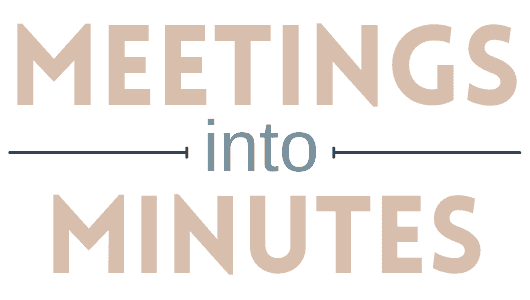Whether you’re a business owner or a member of a committee looking for information, there are a number of different requirements for an association that you may not be aware of. Some of these requirements ensure that you stay compliant and do not risk getting into issues in the event of legal matters arise.
No matter how you look at it, there are certain records an association must keep in order to provide evidence of actions that have taken place. But, they’re also highly important to ensure the everyday running of your business is efficient and professional.
What records must be kept by an association?
There are a number of records that must be kept in order to stay compliant. These include:
- A register of your committee members
This must be kept at the main premises of the association and must be made available for inspection free of charge. It must also contain particulars such as name, date of birth and address of each member, positions held and dates they were appointed. It must also be updated within one month of changes taking place.
- A record of any disclosure of interest by a committee member
Any disclosure by a committee member of a direct or indirect interest must be noted and recorded. If this is to be in conflict with the committee member performing their duties, the committee must deal with such disclosure in accordance with section 31 of the Associations Incorporation Act 2009 (the Act). This must be available for inspection by any member and cannot exceed a $5.00 fee.
- A record of financial transactions and position
As a bare minimum, associations need to keep:
– Receipt books
– Records of any payments made
– Invoices
– Bank statements
– Bank deposit books (if applicable)
– Cheque books
If records are kept in another language, an English version must also be kept and maintained.
- Minutes of all committee and general meetings
For the proceedings of all committee and general meetings, minutes must be filed and kept. All minutes will need to be accurate and efficient at stating what proceedings have occurred and include an accurate summary of the meeting. Minutes should also include details of people in attendance of the meetings, documents submitted to the meeting and any failed or passed resolutions. If minutes are recorded in any language other than English, an English transcripted version will also need to be kept.
- A register of your members
Associations need to be able to identify their members at any given time. How this is recorded depends on the association and their own maintenance of records. In general, the name of the member, contact details and the date they joined are the basic details required.
You should also consider keeping:
- A record of authorised signatories
- A record of your current public officer and official address
How should minutes of a meeting be kept?
All records of your minutes should be kept in written or electronic form. If they are kept in electronic form, they will need to be able to be converted into a hard copy easily. When a person requests to see the minutes of your meetings, a record of these minutes should be available to that person within a reasonable timeframe.
Ensure you stay compliant and keep things as stress-free as possible by utilising the services of an independent minute-taker to handle all of your minute taking needs.
Need more information?
If you require more information, contact your local Fair Trading office. If you’re in need of a minute-taker for your next general or committee meeting, get in touch with Meetings Into Minutes today on 0421 388 337.





